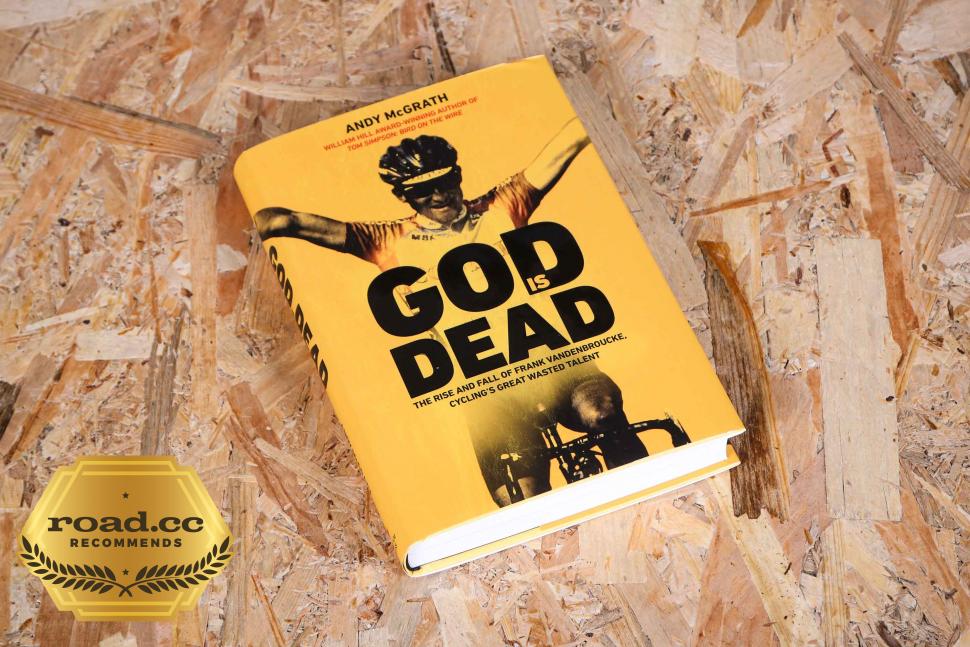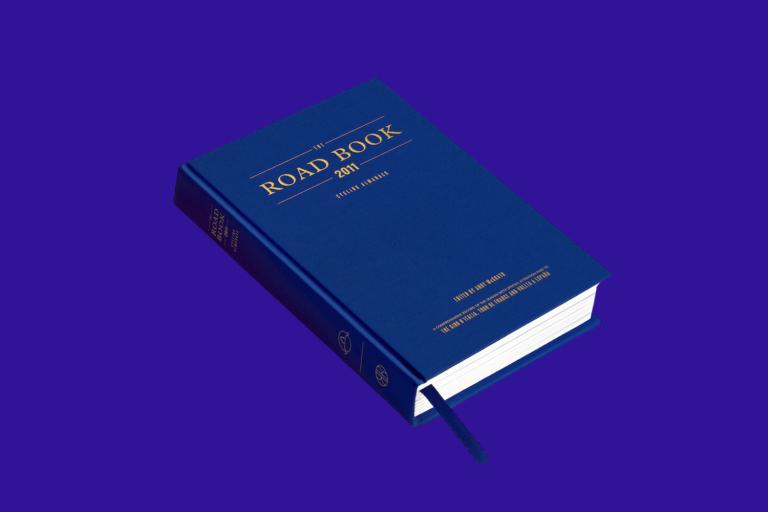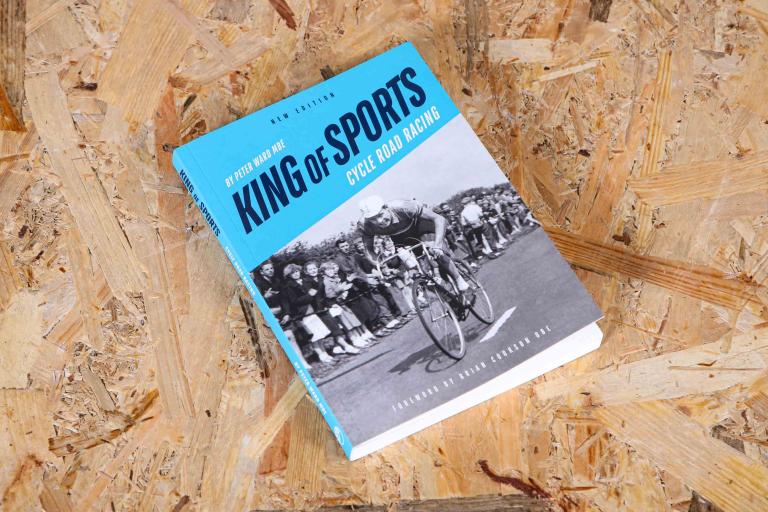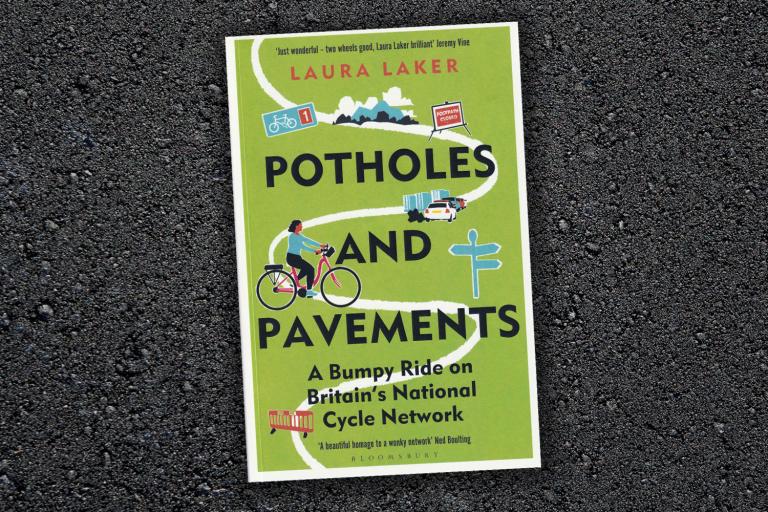- News
- Reviews
- Bikes
- Accessories
- Accessories - misc
- Computer mounts
- Bags
- Bar ends
- Bike bags & cases
- Bottle cages
- Bottles
- Cameras
- Car racks
- Child seats
- Computers
- Glasses
- GPS units
- Helmets
- Lights - front
- Lights - rear
- Lights - sets
- Locks
- Mirrors
- Mudguards
- Racks
- Pumps & CO2 inflators
- Puncture kits
- Reflectives
- Smart watches
- Stands and racks
- Trailers
- Clothing
- Components
- Bar tape & grips
- Bottom brackets
- Brake & gear cables
- Brake & STI levers
- Brake pads & spares
- Brakes
- Cassettes & freewheels
- Chains
- Chainsets & chainrings
- Derailleurs - front
- Derailleurs - rear
- Forks
- Gear levers & shifters
- Groupsets
- Handlebars & extensions
- Headsets
- Hubs
- Inner tubes
- Pedals
- Quick releases & skewers
- Saddles
- Seatposts
- Stems
- Wheels
- Tyres
- Health, fitness and nutrition
- Tools and workshop
- Miscellaneous
- Cross country mountain bikes
- Tubeless valves
- Buyers Guides
- Features
- Forum
- Recommends
- Podcast
review
 2022 God Is Dead The Rise and Fall of Frank Vandenbroucke
2022 God Is Dead The Rise and Fall of Frank Vandenbroucke£18.99
VERDICT:
Well-told and compelling tale that justifies the claim that VDB was 'cycling's great wasted talent'
Very revealing biography
Decent set of images
It's yet another book about a cheat
Weight:
547g
Contact:

This product has been selected to feature in road.cc recommends. That means it's not just scored well, but we think it stands out as special. Go to road.cc recommends
At road.cc every product is thoroughly tested for as long as it takes to get a proper insight into how well it works. Our reviewers are experienced cyclists that we trust to be objective. While we strive to ensure that opinions expressed are backed up by facts, reviews are by their nature an informed opinion, not a definitive verdict. We don't intentionally try to break anything (except locks) but we do try to look for weak points in any design. The overall score is not just an average of the other scores: it reflects both a product's function and value – with value determined by how a product compares with items of similar spec, quality, and price.
What the road.cc scores meanGood scores are more common than bad, because fortunately good products are more common than bad.
- Exceptional
- Excellent
- Very Good
- Good
- Quite good
- Average
- Not so good
- Poor
- Bad
- Appalling
Frank Vandenbroucke was a professional cyclist who experienced a rapid rise to fame, but although he did well enough in the sport, a combination of drugs and other distractions curtailed his career. His premature death did nothing to dissuade those who think he was on the way to becoming one of the greatest ever, which is partly why books are still written about him. God is Dead tells the story of this colourful character, who didn't seem to do anything in half measures. It's not the first biography of a cheating cyclist, but Andy McGrath's thorough research does set this one apart.
I've said it before, and no doubt will have occasion to say it again, but I am always frustrated that so many cycling biographies are about dopers. I dislike the rather one-dimensional impression it gives of our sport, but judging by their continued popularity there must be demand.
More galling, in my opinion, are those books where the bad guys are still alive and able to tell their own story, because then they continue to profit from their cheating. That's why Tyler Hamilton's The Secret Race didn't sit well with me, as but one example, despite being a great read.
The subject of God is Dead, Frank Vandenbroucke (or VDB), adds a different dimension, where an early death after a rapid rise to fame (and a self-inflicted decline) leads to unfathomable mythology. It proved to be a good career move for Vandenbroucke, just as it was for Marco Pantani; VDB even commented that 'I have lived the same life as Marco, but I have survived it', which turned out to be only partly true.
When a writer of the calibre of Andy McGrath enters the fray, you can expect something beyond a conventional biography. McGrath has form, with his tome on Tom Simpson receiving justifiable praise.
There have been books about Vandenbroucke before, although only the one in English that I know of. McGrath quotes extensively from another book, Vandenbroucke's 2008 autobiography: the title 'Ik Ben God Niet' translates to 'I'm not God', in reference to the adulation he received during his time as the latest 'next Eddy Merckx'. It also gave McGrath the prospect of a suitably polemic title for his own work.
The question is, will it appeal to more than the 'VDB' fan club? Unfortunately (given my misgivings), it will. I was reminded of Thomas Dekker's book The Descent, where activities on and off the bike are taken to such extremes that it makes for compelling reading, however distasteful they might be.
What would you like to hear about: drugs, money, cars, injury, illness, family rifts, team politics – and a bit of cycle racing? All present – with a central character who is hard to like. There may be little that you can't read about to some extent in other riders' biographies, but VDB seems to excel in all areas.
> 42 of the best cycling books – check out the books every cyclist should own
Without trying to excuse the excesses, but rather to help understand how hard it would have been to behave 'normally', McGrath notes: 'Given Belgium's small size and finite number of celebrities, there was a greater co-dependency between press and personality, and more regular appearances on the front page.' This leads to a 'transition from the sports section to tabloid fodder', living 'adult life under a media microscope'.
I am reminded of the old joke about naming a famous Belgian – apart from Tintin.
Fittingly, the untimely end is definitely not glamorous, and details are a bit unclear, with VDB 'last seen [alive] by a prostitute in a grubby hotel room with insulin, Xanax and sleeping pills by his bedside'. It almost makes you feel sorry for him.
McGrath interviews a lot of people during his research; some are to be expected, such as family members and former team-mates, others less so, such as an 'addiction specialist'. Understandably, there are some who didn't want to talk, including his ex-wife.
McGrath covered a lot of ground in his 'journey down every avenue of Frank Vandenbroucke's life', including 'a literal one around his home country of Belgium'. He wanted to cover 'as many facets as possible of this plural man', and as a result 'the wider family might not be delighted with every detail published'. I would understand if that were the case – but it is also what makes God is Dead a properly revealing 'warts and all' biography.
VDB's career does make for a rather good story, and McGrath has told it very well, but I can't help wishing there were more biographies of this standard about riders who were more worthy of respect. Or do they simply not sell as well?
Verdict
Well-told and compelling tale that justifies the claim that VDB was 'cycling's great wasted talent'
road.cc test report
Make and model: God Is Dead The Rise and Fall of Frank Vandenbroucke, Cycling's Great Wasted Talent
Size tested: n/a
Tell us what the product is for and who it's aimed at. What do the manufacturers say about it? How does that compare to your own feelings about it?
From the Publisher:
They called him God.
For his grace on a bicycle, for his divine talent, for his heavenly looks. Frank Vandenbroucke had it all, and in the late nineties he raced with dazzling speed and lived even faster.
The Belgian won most of cycling's most prestigious races, including Liège-Bastogne-Liège and Paris-Nice, enthralling a generation of cycling fans. Off the bike, he only had one enemy - himself. His rise to prominence coincided with a rampant period of doping and Vandenbroucke had a wayward streak. He regularly fell out with team managers and had all-night party sessions mixing sleeping pills and alcohol. A drugs scandal started a long fall from grace, leading to addiction, car crashes, court appearances, marital problems and suicide bids, punctuated by sporting comebacks.
His life was like a soap opera and its premature ending shocked many. In October 2009, aged thirty-four, Vandenbroucke was found dead in a Senegalese hotel room - in mysterious circumstances.
Led by candid contributions from his closest family, friends and associates, William Hill award-winning author Andy McGrath lays bare Vandenbroucke's turbulent life story. God is Dead is the compelling biography of this mercurial cycling prodigy.
Tell us some more about the technical aspects of the product?
Title: God is dead
Author: Andy McGrath
Publisher: Bantam Press
Date: 10/3/22
Format: Hardback
Pages: 310
ISBN: 9781787631205
Price: £18.99
Tell us what you particularly liked about the product
It kept me interested in the story, despite my feelings about the subject.
Tell us what you particularly disliked about the product
The subject matter.
Did you enjoy using the product? Yes
Would you consider buying the product? Yes
Would you recommend the product to a friend? Yes
Use this box to explain your overall score
I didn't really want to like another book about a doper whose career held little interest for me at the time – but it is a compelling story told well.
About the tester
Age: 60
I usually ride: My best bike is:
I've been riding for: Over 20 years I ride: Most days I would class myself as: Expert
I regularly do the following types of riding: touring, club rides, sportives, general fitness riding,
Latest Comments
- Secret_squirrel 2 sec ago
Pedantry alert. The steerer tube is part of the fork. Thats why its full name is fork steerer tube. A fork begins at the steerer tube and ends...
- Rendel Harris 15 min 53 sec ago
*cough* culs-de-sac *cough* Alright, I know you can say cul-de-sacs, but it doesn't mean you should...
- levestane 1 hour 17 min ago
He's sorry he might have caused offence, i.e., not sorry about being offensive.
- wtjs 1 hour 25 min ago
Mercedes A-Class WU66 LLJ below went without MOT for 8 1/2 months from 19.10.23 to 2.7.24. I just happen to be doing some following up and evidence...
- HarrogateSpa 2 hours 24 min ago
I think you've got your Yateses mixed up.
- BikingBud 3 hours 49 min ago
The veg analogy is spot on. In the same manner that I despise sprouts I have no interest in watching football, not the English premier nor the ...
- chrisonabike 3 hours 52 min ago
"Othering" is likely involved. There are some other "but humans" features * here too I think....
- wtjs 4 hours 4 min ago
The mis-reporting continues:...




Add new comment
5 comments
Characters like this is what makes cycling interesting. Flawed genius, fallen angels, genius squandered. Cycle until the amphetemines cause you to fall off your bike and die on the road. Life at full throttle. Hats off to him and how he spent life on earth. I have no interest in reading about Chris Froome. Massive abuse and death is the true history of the Tour.
I am in total agreement with the theme of the review, it's sad that dopers keep on gaining after their misdeeds, on the back of their misdeeds, David Millar being an example. I bought Millar's book off for £1 off a 2nd hand bookstall and was so put off by the rampant immodesty and conceit that I had to read Charlie Wegelius's book 'Domestique' to flush it out of my system.
Wegelius's book is a tour de force of the what life is like for the majority of the peloton back in the day. I would reccomend it to anyone as an illuminating but sober read.
Roger Hammond may disagree
Agreed, though not doping related - money/team/loyalty related issues.
Interesting. I read the David Millar book and found him to be very honest about the mistakes he had made and never tried to blame anyone but himself.
In other respects I agree with the reviewer as it always seems a "good' career move" for dopers to die young.